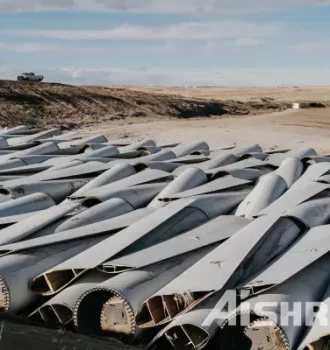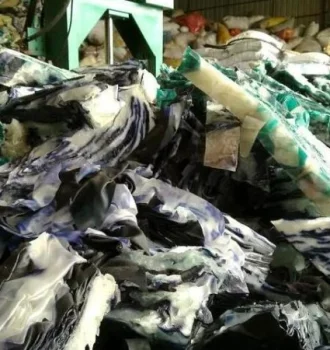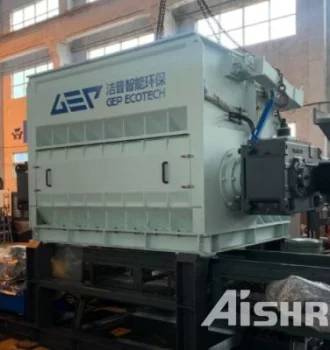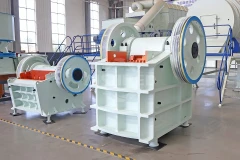
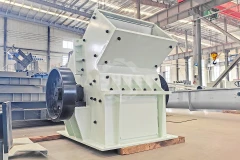
Slag treatment is an essential process in steelmaking, metallurgy, and mining industries. Large volumes of slag such as steel slag, furnace slag, and mineral slag are generated during production. Due to its high hardness, abrasiveness, and irregular size, slag cannot be reused or recycled without proper crushing and processing. An efficient slag crushing system is therefore the foundation of effective slag recycling.Challenges in Slag Crushing and RecyclingSlag processing places high demands on crushing equipment. Typical challenges include:Large feed size and irregular material shapeHigh compressive strength and strong abrasionPresence of metal impuritiesRequirement for long-term continuous operationTo address these challenges, slag crushing equipment must feature high structural strength, wear resistance, and operational stability. GEP ECOTECH provides a proven slag treatment solution by combining jaw crushers and hammer crushers, enabling stable and efficient size reduction from coarse crushing to fine
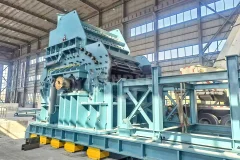
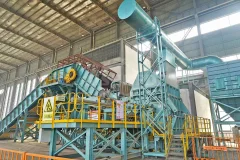
In the field of solid waste recycling and resource utilization, the crushing stage directly affects system efficiency and material recovery rates. GEP ECOTECH's hammer crusher, with its powerful impact force, robust structural design, and high crushing efficiency, has become the ideal equipment for industrial solid waste, end-of-life vehicles and metals, and lightweight mineral slag — enabling high-efficiency crushing and fine material processing.Working PrincipleThe hammer crusher consists of a casing, rotor, hammers, liners, and screen plates. Material enters the crushing chamber from the top and is crushed by the impact, shear, and grinding actions of the high-speed rotating hammers. Material meeting the target particle size passes through the screen plates, while oversized material continues to be crushed until it reaches the required size.With an optimized rotor and hammer arrangement, the machine maintains stable crushing force and consistent output particle size at high rotational speeds, reducing
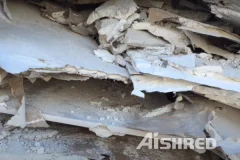
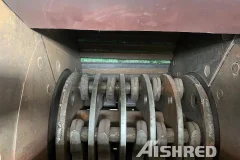
When it comes to crushing plasterboard and gypsum, there are several types of equipment to choose from, each with its own advantages and suitability depending on your specific needs and requirements. Here are some common equipment options for crushing plasterboard and gypsum:Hammer Mill or Hammer CrusherAdvantages: Cost-effective option for small-scale operations. Simple design and operation. Can quickly crush plasterboard and gypsum. Considerations: May produce a significant amount of dust. Limited control over the final particle size. Not suitable for large-scale production. Jaw CrusherAdvantages: Suitable for moderate-scale production. Provides better control over the particle size. Lower maintenance costs compared to some other options. Considerations: Higher initial investment. May require secondary crushing for finer particles. Consumes more energy compared to other options. Cone CrusherAdvantages: Suitable for large-scale production. Offers precise control over particle size. Efficient for creating

